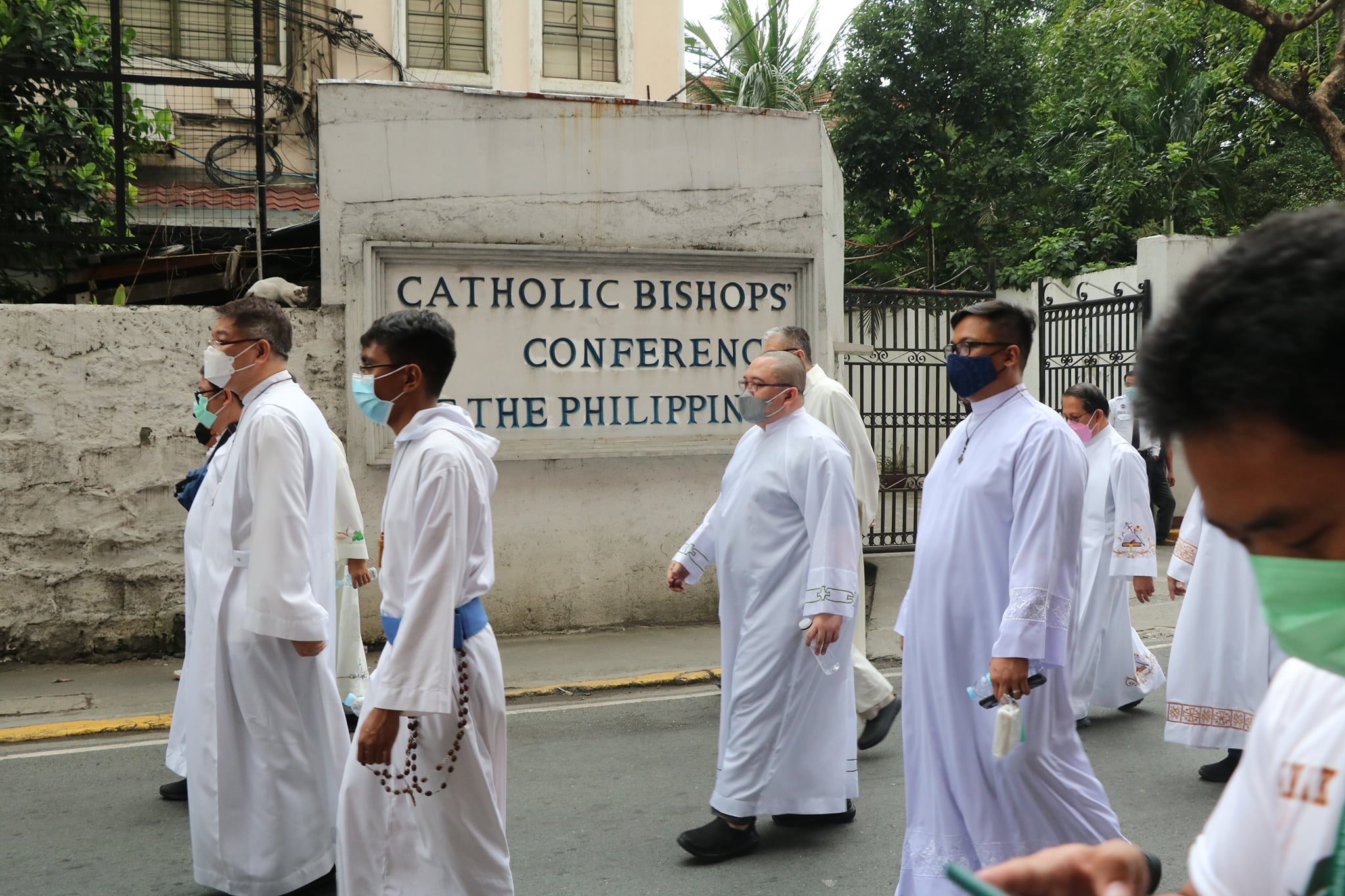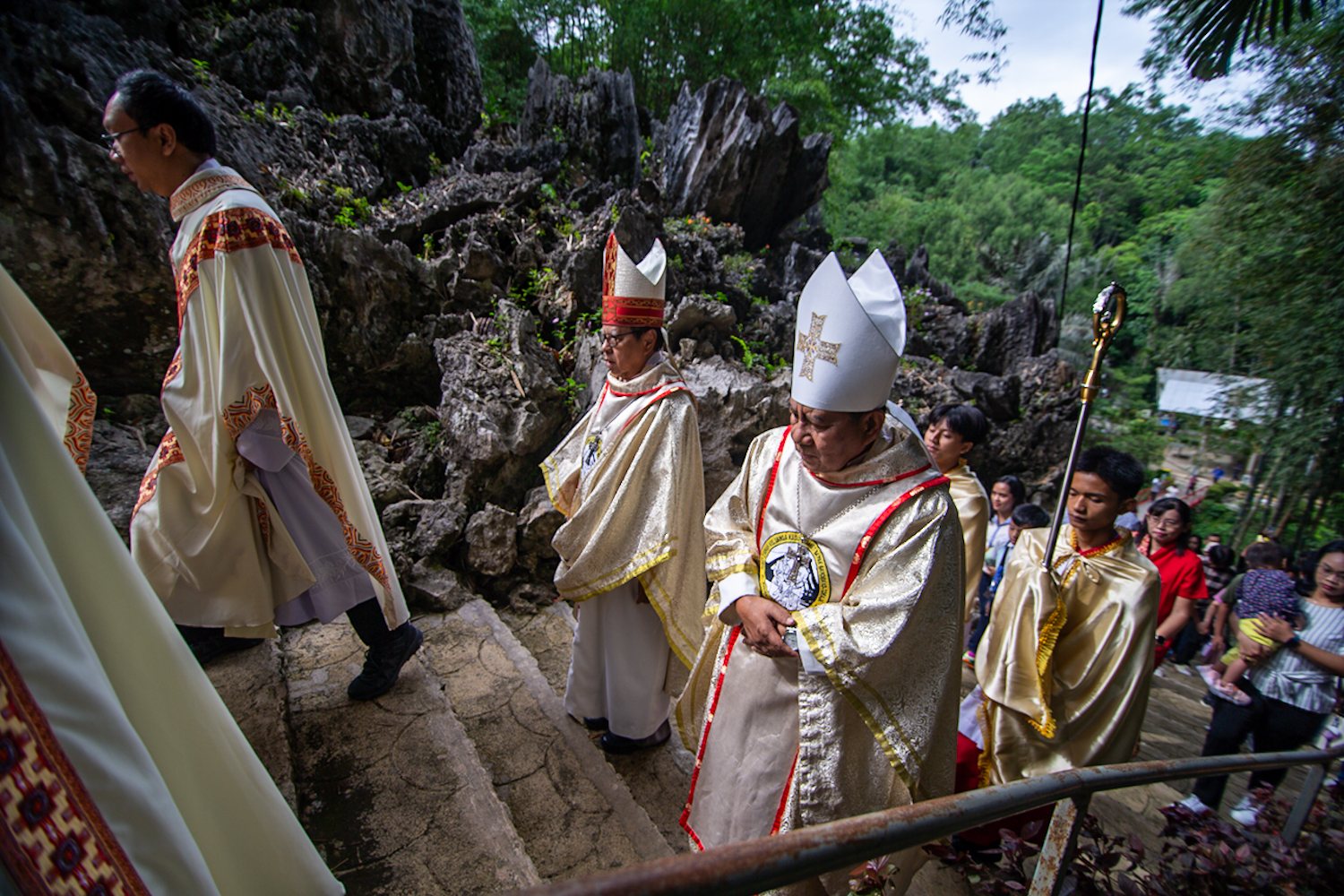Fr. Leonard E Dollentas
Today, the Church’s mission focuses on journeying with the faithful toward a community of faith, to be committed to being a positive force in the building up of a more just and more humane society. In the Philippines, the vibrancy of Catholic parishes is one progressive element in enabling people to explore their Christian witnessing in a society in a meaningful way. Fr Jeff Manlapig, a parish priest of one of the parishes in the Diocese of Paranaque in the Philippines, provides O Clarim readers with a glimpse of his reflections on the local situation now in the Philippines, amidst the pandemic and the coming national election on May 9, 2022.
O Clarim: Fr. Jeff, it is a privilege to have you with us at O Clarim. Can you give us the situation now in the Philippines, or maybe in your area, amid the pandemic and at the height of the election campaigns for the approaching national election?
Fr. Jeff: Let me start with a disclaimer. I’m responding to these questions, not as a theological or social commentator, but as a pastor of a little parish here in the suburbs of Manila. As of this moment, COVID cases have gone drastically down from February onwards. It was very bad last January due to the Omicron variant. But the country began moving forward from the last part of February to early March. Hence, public religious activities were permitted to gradually reopen, from 50% seating capacity to 100% as of today. While this is a general guideline for all under “alert level 1” (new normal), some churches still follow basic health protocols like wearing face masks, social distancing, and personal hygiene and sanitation. The Health Department has been unbending and rigorous in implementing rules. But as the election approaches, political rallies, which usually attract a huge number of people, are readily permitted. They allow public places to be opened up, and whenever there is a spike of cases, they tell us to lock churches up first, instead of malls and other areas of social gathering.
O Clarim: In the Philippines, Christianity has been a major influence on state formation and politics. What do you think is the role of the Catholic Church in Philippine politics, particularly in the coming 2022 presidential election?
Fr. Jeff: The mainstream Christian churches here in the Philippines have always played an important role in the political arena of the country. And in a very palpable way, the Catholic Church has always been an exceedingly active participant in the socio-political atmosphere of the country.
If there’s a particular role of the Church during this year’s election, it would be the following:
- The Church has to be a prophet. Speaking and proclaiming the truth will always be part of our mission. Speaking for the oppressed and the suffering will always be essential to the Church’s mission.
- The Church has to be a “co-discerner,” especially of our lay faithful. We need to provide means for communal and personal discernment in order that all Filipino Christians elect candidates who will be voted into power, not out of popularity or prestige, but more because of principles and values.
O Clarim: The son of the Philippines dictator, who was ousted in the 1998 People Power Revolution, is now leading the presidential race according to a survey. What do you think is the sentiment of the Filipinos about this? What about the clergy?
Fr. Jeff: While publicity indicates that this candidate is a favorite in the public surveys, I feel, or at least I have an intuition, that many Filipinos desire a change and renewal of our society. Reading through social media, I see that many, especially the youth and young adults, are already voicing out their sentiments and their clamor for a government that will be responsible, firm and compassionate. Unfortunately, it is also through social media that trolls and “bashers” abound. Disinformation and false claims can easily be accessible through popular social media platforms. Some have even attempted to twist and tweak our nation’s history. Thus, many people, especially urban poor residents, easily fall prey to “fake news” and empty promises. Some priests and religious also end up receiving, and even spreading disinformation to many. That is why we Filipinos really have to open our minds to the sobering and painful truth in order to choose the right leaders for our country.
O Clarim: Is the Catholic Bishops’ Conference of the Philippines (CBCP) endorsing any presidential candidate?
Fr Jeff: The bishops have never endorsed any particular candidates for the presidency. In their recent pastoral letter and statements, they have given guidelines and pointers in order that the people discern and choose their leader wisely and conscientiously. Our bishops did not give any restrictions for individuals and groups of lay faithful, clergy and religious to make public statements regarding the election. Some groups and communities, after a period of discernment, have endorsed particular candidates, while some echo the bishops’ call for discernment and reflection. They encourage “circles of discernment” where people of all walks of life can learn and discuss among themselves the leadership platforms and plans of the candidates. Thus, our bishops are leading us to moments of prayerful reflection which will ultimately produce a well-discerned decision.
O Clarim: The present Philippines president declared that the presidency was no job for a woman because of their emotional differences from men. Do you think Filipinos would still welcome and vote for another female president?
Fr. Jeff: Filipino culture has both paternal and maternal qualities. While the father is still the quintessential image of firmness and strength, the mother is still a symbol of compassion and courage, especially in taking care of, and even defending, her children. Seeing all the difficulties the country is constantly facing: the pandemic, natural calamities, social sin and the ever-changing face of a globalized nation, I wouldn’t be surprised if the “last man standing” might actually be a woman.


 Follow
Follow


